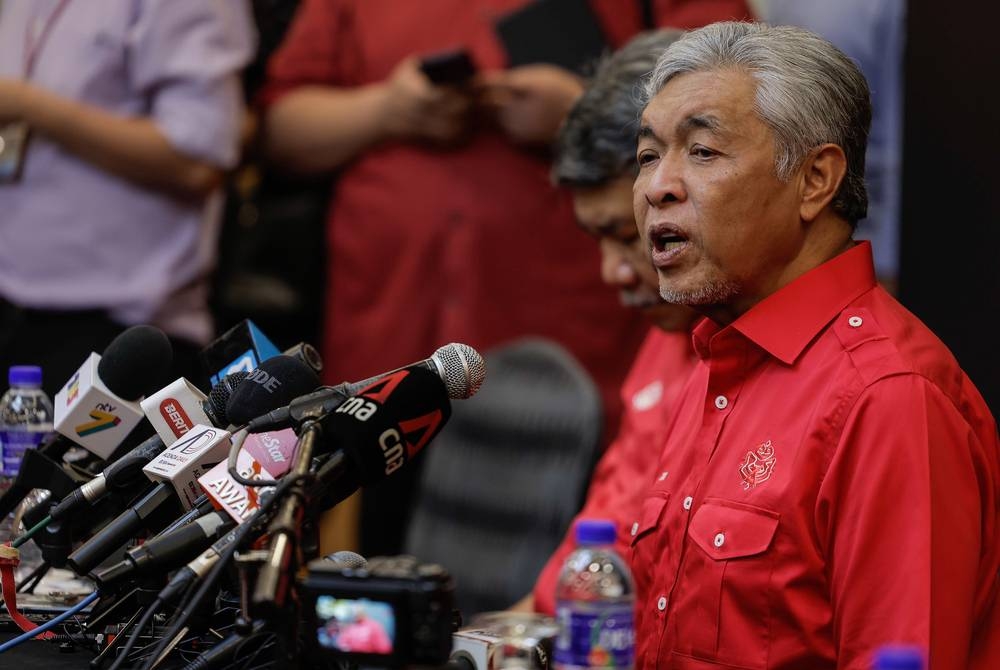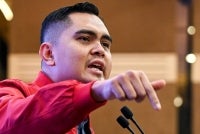Umno over the decades
SYDI ALIF18 Oct 2022 12:56pm

Present Umno President Datuk Seri Ahmad Zahid Hamidi - Bernama pic
At the Umno general assembly in June 1951, Onn Jaafar, the Umno founder proposed the membership to be open to non–Malays and the party to be renamed as ‘United Malayan National Organisation’ to reflect the change.
Umno’s senior executives were ready to accede to Onn’s request but the second-echelon leaders and wider membership were not quite.
They viewed the proposal as being too radical.
As a result, Onn left Umno and set up the non-communal Independence of Malaya Party (IMP) on Sept 16 1951.
At the infancy of its struggle for independence, Umno formed a multiracial political pact when Perikatan between Umno-MCA was established in 1952 when both parties contested in Kuala Lumpur municipal elections.
Their victory paved the way for independence.
In preparing for the first general election in 1955, Umno-MCA-MIC pact was inked to symbolise the multiracial cooperation led by Tunku Abdul Rahman Putra which won with flying colours.
This was a clear message to the colonial British that all races in Malaya were ready as one for independence.
On April 24 1987, Umno held its party election which saw a huge battle between Team A led by its then president Mahathir and Team B fronted by Tengku Razaleigh Hamzah.
Rumours spread that Razaleigh had won, yet the official results declared Mahathir instead as the winner.
Upset by the election, Razaleigh's supporters insisted that it had been rigged.
As a result, 12 Umno members filed a lawsuit in the High Court seeking a court order to void the election results and pave the way for a new election. However, one of the twelve withdrew from the case giving birth to the event’s name Umno 11.
After a series of interlocutory hearings over the discovery of documents that took more than seven months, the matter finally came before Justice Harun Hashim in the Kuala Lumpur High Court on Feb 4 1988.
The judge ruled that under the existing law he had no option but to declare Umno an unlawful society due to the existence of several unregistered branches which was an illegal act under the Societies Act of 1966.
As a result, Tunku Abdul Rahman and former Umno President Hussein Onn set up a new party called Umno Malaysia which claimed to be the successor of the old Umno supported mainly by members of the Team B faction from Umno.
A week after Umno Malaysia's registration was rejected, a new surrogate party by Mahathir was registered as Umno (Baru) whose most of its leaders were selected from the Team A of the old Umno.
After ruling for 61 years, the United Malays National Organisation (Umno) finally fell at the ballot box at the Malaysia’s 14th general election on 9 May 2018 ending the world’s then longest one-party rule with regular elections.
The victory of the three-year-old Pakatan Harapan headed by Dr Mahathir Muhamad and Datuk Seri Anwar Ibrahim both former leaders of Umno and its Barisan Nasional coalition is the dramatic culmination of 20 years of political fragmentation and realignment.
A political analyst at Universiti Utara Malaysia Associate Professor Azizuddin Mohd Sani said on Umno’s direction, of course it had changed since its formation when its biggest mission was independence whereas today, Malay’s rights and issues had become the main focus.
He noted however, in order to realise its specific goal and bring prosperity to the country in general, it needs the support of other parties so that it is able to stay relevant and keep serving the nation in the future.
Professor Aruna Gopinath of Universiti Pertahanan Nasional Malaysia (UPNM) noticed that the attitude of leaders in the party around an election and once they were elected was inconsistent and that the anticipated end result was hardly ever delivered.
She also reflected on supporting the opposition, “Unfortunately, our opposition is not strong enough, the leadership is weak and at one time, we were hoping that they would take over and run the country.
“In the last election, we saw quite a number of changes (and reforms) and we are hoping that the same will happen this time also.”
Download Sinar Daily application.Click Here!














